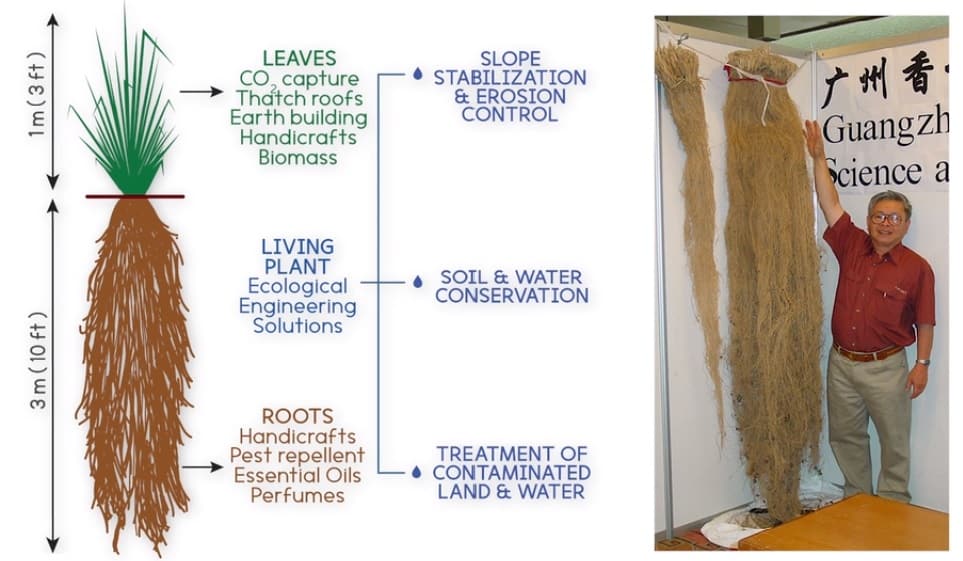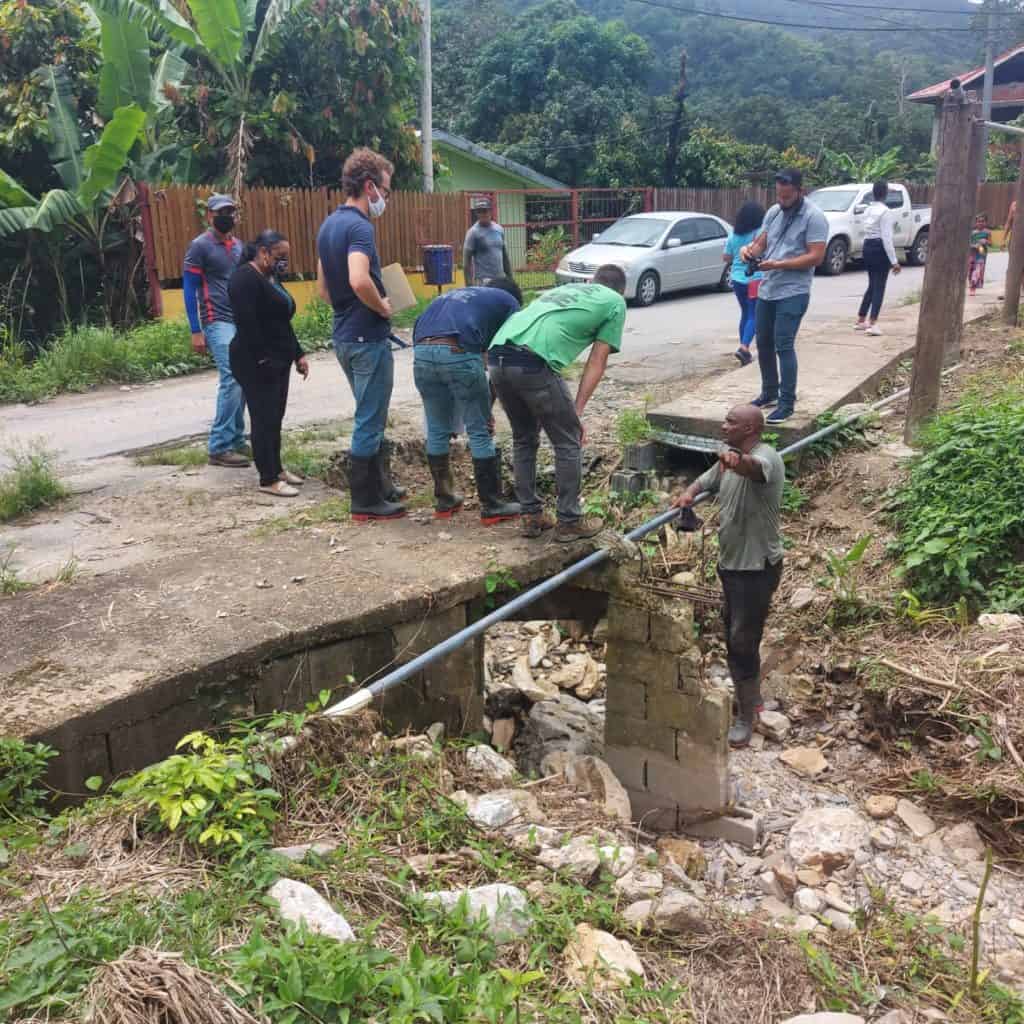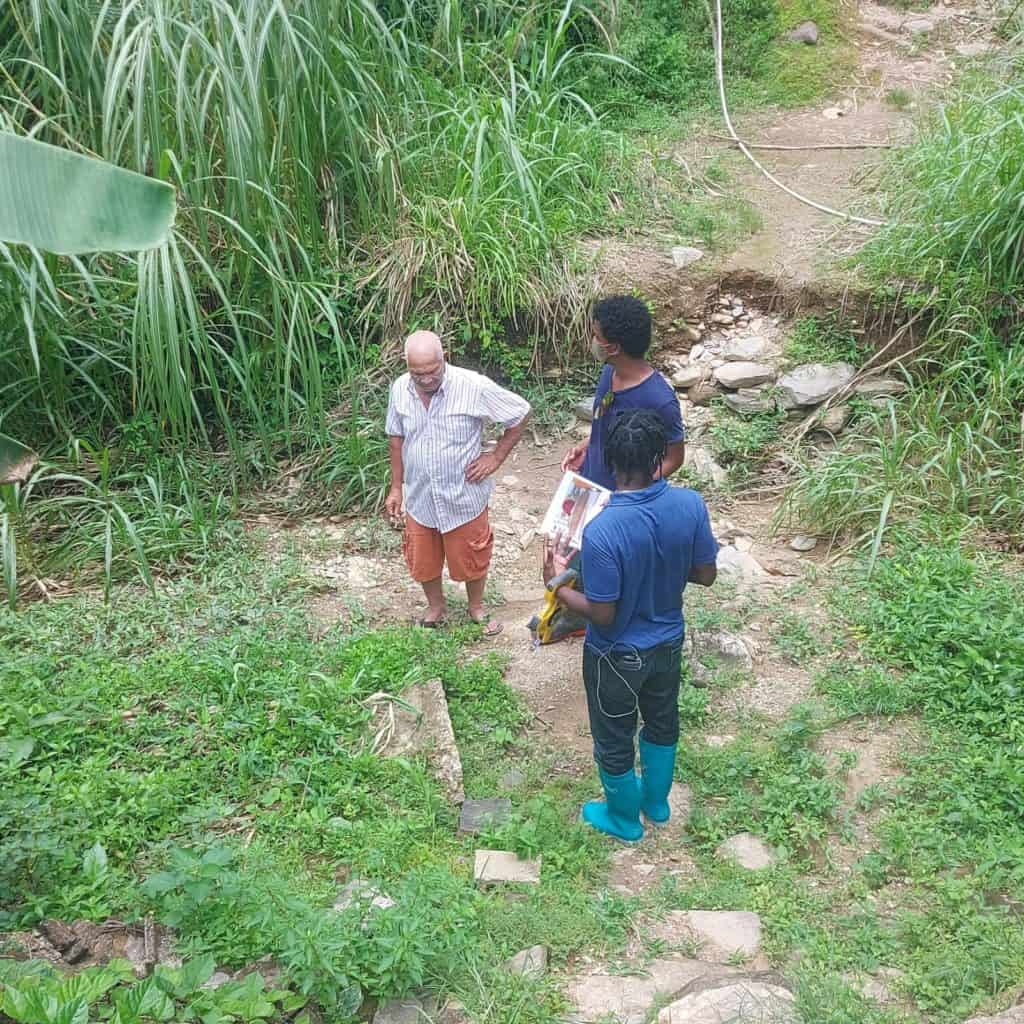The youth-led environmental non-profit organisation, IAMovement, has recently embarked on a new mission to help strengthen rural at-risk communities against the impacts of climate change. They call this new initiative the ME-WE-GREEN project (An Education & Empowerment Programme for Climate Change Adaptation). With the support of Ministry of Planning and Development’s Green Fund, their main focus through ME-WE-GREEN is to educate communities on how climate change is directly affecting their soil, water and food and supply. In doing so, the group hopes to help communities all across Trinidad and Tobago discover cost-effective ways to address these problems.
The solution proposed under ME-WE-GREEN is Vetiver Grass
The ME-WE-GREEN initiative is the first of its kind in the western hemisphere that promotes vetiver grass and the Vetiver System. IAMovement is taking the lead to introduce it to communities nationally. Through ME-WE-GREEN, eight local communities are helped to establish community nurseries for the vetiver stock and are given education and training on how to maintain it and maximise its benefits. These communities are Lopinot, Cedros/Icacos Morgua and Environs, East Port of Spain, Santa Cruz, Paramin, Cameron and Diego, Brasso Seco (inclusive of Arima, Guanapo, Blanchiceusse) Forres Park and Environs.
How would this benefit Lopinot residents?
As it is the rainy season, Lopinot has been one of the communities severely impacted by rising flood levels. This has resulted in homes being flooded and the loss of land due to landslides. The vetivier system will be used to buttress the community against these threats. IAMovement, joined community representatives and other stakeholders to tour sites in need of reinforcement. This visit allowed IAMovement representatives to identify which sites would benefit most from the planting of vetiver grass.
Lopinot has more to look forward to as this initiative comes in two parts. The first part would be the planting of the vetiver stock and the training of farmers. The second part focuses on community outreach wherein residents would be trained on other uses of the plant mainly in handicrafts and basket weaving.
What is vetiver grass and why is it important?
Vetiver grass is a non-invasive tropical plant species that resembles our local lemon/fever grass. It is most known for its deep and fibrous root system that spreads down instead of laterally. These roots can reach up to 10 feet within two years of being planted therefore making it resistant to droughts and resistant to being dislodged by strong currents.

The green leaves of this plant are so dense that even fire has a hard time penetrating them; this acts as a firebreak to slow creeping fire. Once planted correctly, the Vetiver System can assist with top soil regeneration and improvement, contaminated lands and water treatment, infrastructure reinforcement and protection, slope stabilisation, erosion control, sediment control, riverbank stabilisation, flood mitigation and groundwater recharge.







